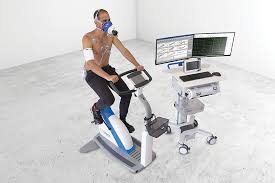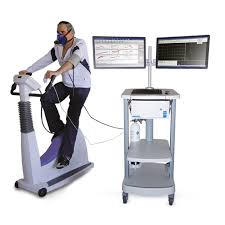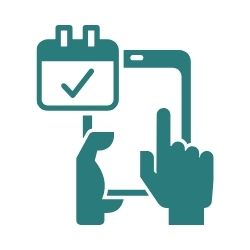Exercise Stress Test Near You: Trusted Labs, Best Prices
Compare Prices in your city
- Choose from verified local centres and national chains
- Compare prices and save big on online booking
- Fast, accurate reports with on-time sample collection
All labs verified for quality standards and reliable reporting
 What Is an Exercise Stress Test (CPET)?
What Is an Exercise Stress Test (CPET)?
The Exercise Stress Test, also known as the Cardiopulmonary Exercise Test (CPET), is a comprehensive diagnostic tool used to evaluate how your heart, lungs, and muscles respond to physical activity. Unlike standard tests performed at rest, CPET provides real-time data on how your body functions under stress.
What Does CPET Measure?
During a CPET, key physiological metrics are monitored while you exercise, including:
- Oxygen consumption (VO₂ max)
- Carbon dioxide production
- Heart rate
- Breathing patterns
- Exercise capacity
These insights help healthcare providers identify the root causes of symptoms like shortness of breath, chest pain, dizziness, or fatigue during physical activity.
Why Is a CPET Performed?
Diagnose heart and lung conditions
Evaluate exercise intolerance or unexplained fatigue
Guide treatment plans for chronic illnesses such as heart failure or pulmonary diseases
What to Expect During the Test?
The test is conducted on a treadmill or stationary bike, gradually increasing in intensity. You’ll wear:
- A facial mask to analyze your breathing gases
- Electrodes to monitor heart function
- Sensors to track lung performance and effort
The goal is to evaluate how efficiently your body transports and uses oxygen during physical exertion.
Other PFT Tests
What Does an Exercise Stress Test (CPET) Detect?

Coronary Artery Disease (CAD)
Assesses heart function under stress to detect blockages

Heart Failure
Determines how well your heart pumps blood during exertion

Lung Disorders (COPD, Asthma, Pulmonary Hyper tension)
Identifies breathing limitations

Exercise-Induced Asthma
Diagnoses airway narrowing triggered by physical activity

Oxygen Uptake Efficiency (VO2 Max)
Measures aerobic fitness and endurance levels

Post-COVID-19 Recovery Assessment
Evaluates lingering breathing issues after COVID-19
Want to Consult a Doctor Before Your Exercise Stress Test?
If you’re unsure whether an Exercise Stress Test (CPET) is necessary, consult a cardiologist or pulmonologist for expert advice.
Why Consult a Doctor?
✔️ Get a precise diagnosis for chest pain, breathlessness, or exercise fatigue
✔️ Understand if additional tests like Echocardiogram, ECG, or Spirometry are needed
✔️ Receive expert recommendations on cardiac rehabilitation & fitness improvement
Call Now to Schedule a Consultation ➝ Contact Us
How to Prepare for an Exercise Stress Test (CPET)?
- Avoid Heavy Meals 2-3 Hours Before the Test – A full stomach may affect performance
- Wear Comfortable Clothing & Running Shoes – Loose, breathable clothing is recommended
- Stop Smoking & Caffeine for 6 Hours – Nicotine and caffeine can impact heart rate readings
- Inform Your Doctor About Medications – Some medications may need to be paused before the test
- Stay Hydrated & Well-Rested – Proper hydration and rest help achieve accurate results
Find the Best Exercise Stress Test (CPET) Centre Near You
Searching for a trusted Exercise Stress Test (CPET) centre?
We connect you with certified diagnostic centres offering high-quality testing, accurate reports, and expert cardiopulmonary specialists.
Compare & Book Online – Hassle-free appointments with top diagnostic centres
Affordable Pricing – Get the best rates for CPET tests
Certified Test Centres – Fully accredited & experienced specialists
Find the best clinics for top-rated healthcare services.


 Your Every Appointment Helps Tree Plantation | DigiXPro Digital Solutions Pvt Ltd | Since 2023
Your Every Appointment Helps Tree Plantation | DigiXPro Digital Solutions Pvt Ltd | Since 2023